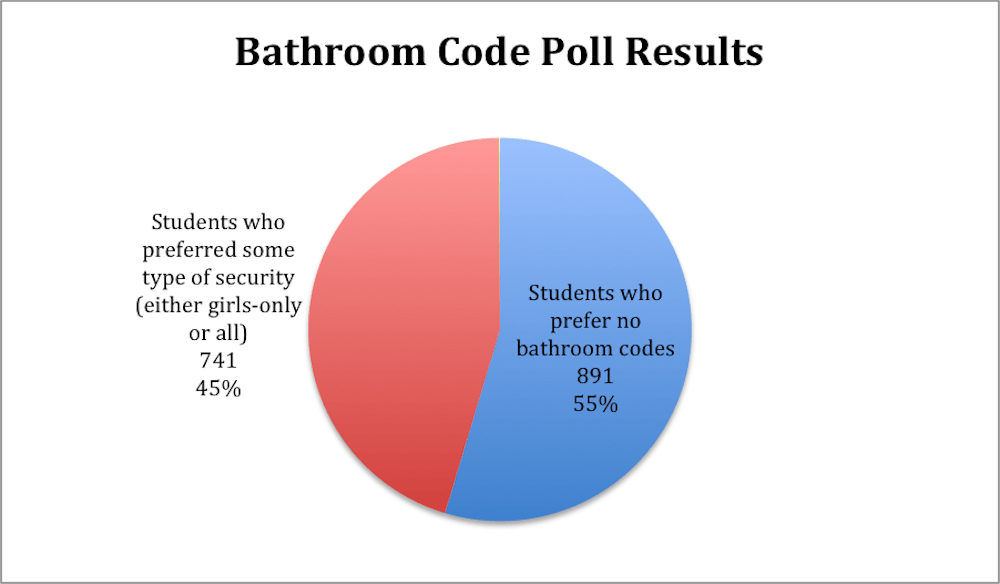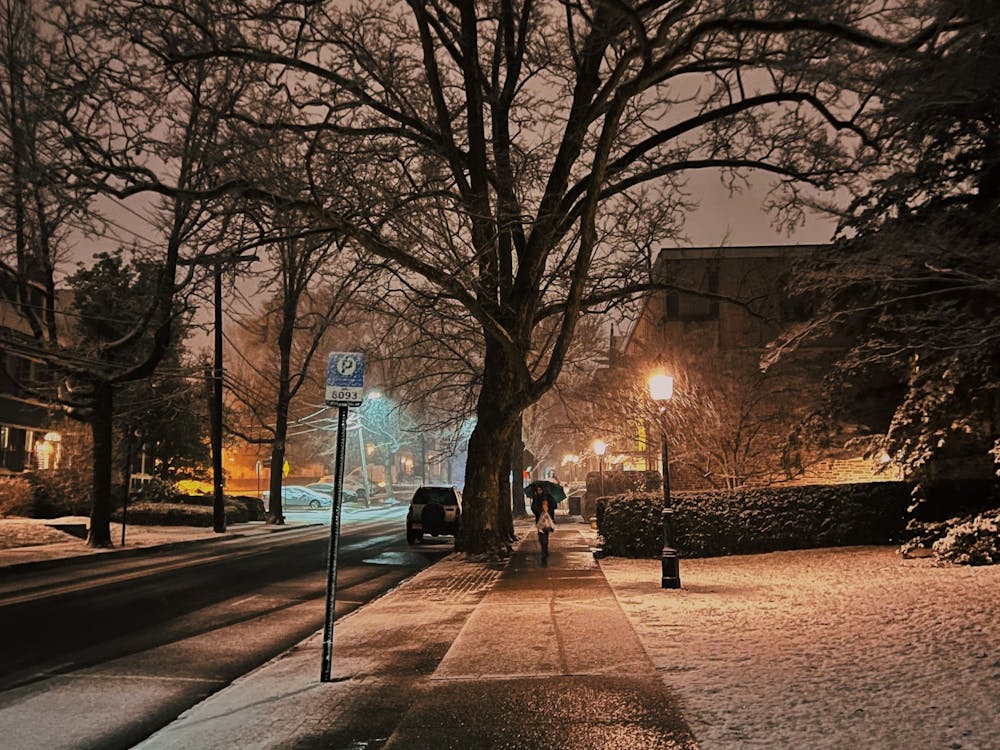Victor Zhou ’18 and twin sisters Monica and Amanda Shi ’18 launched an app on the iTunes store called "GirlCode" after Winter Break. The app, which is currently accessible to anyone, features the codes to get into women's bathrooms in the University’s undergraduate and graduate residential spaces, information that has not traditionally been made freely available to the public.
Monica Shi explained that the app was inspired out of the sheer inconvenience of bathroom codes, especially for female students who would have to ask for bathroom codes from nearby students. The underlying issue, she added, is that bathroom codes promote gender stereotypes.
“Every time that a girl punches in the code, she’s primed to think of herself as defenseless, a victim, hopeless and all that stuff, but every time a guy hears the beep of the bathroom code, he’s primed to think himself as an aggressor,” Shi said.
University spokesperson Martin Mbugua, who said that the administration is currently looking at its bathroom code policies, said they have not yet reached a decision about the app. He added that the app is not endorsed or authorized by the University.
“Individuals do not require permission to develop apps,” Mbugua said, “though they ought to consider if their product might present safety concerns as this app does.”
The Office of Information Technology deferred comment to the Office of the Dean of Undergraduate Students, who deferred comment to Housing and Real Estate Services. Housing and Real Estate Services deferred comment to Mbugua for this story.
Student Life Committee chair and Undergraduate Student Government president-elect Ella Cheng ’16 noted that the USG had sent out an email poll in November asking students whether bathrooms should have codes for neither female nor male students, for females only or for both female and male students. The results revealed that out of 1,635 voters, 54.7 percent of students elected for no bathroom codes for gender, 23.9 percent voted to implement codes for female students and 21.4 students voted for bathroom codes for both male and female bathrooms.

Cheng noted that although there appears to be a majority of students who want to abolish the current system and are in favor of no codes, almost half of the students preferred some type of security. She added that many students could have answered the poll on an impulse and that the poll did not ask students to consider factors of convenience and of privacy and security.
Cheng explained that an important question for the University to consider would be whether to continue using the code system or to have a prox swipe-in system. There are upcoming plans for student-led discussion, focus groups and panels surrounding the bathroom code policy before changes are made, Cheng said.
Cheng is a former staff writer for The Daily Princetonian.
Whitman residential college adviser Nicholas Tippenhauer ’16 said that the problem with the app is that it allows many people access to information that the University clearly does not want them to have. He noted that although there is prox access to most buildings, many students are kind enough to let others into buildings without being suspicious of whether they are University community members.

Tippenhauer suggested other alternatives to the GirlCode app, such asan open discussion of bathroom codes.
"I think you can foster a much better discussion about gender equality to start dialogue, but I don’t think giving out the codes is the right way to go about it,” he said.
Earlier this school year, a male student originally from Wilson College entered a female bathroom in Forbes College and allegedly filmed a female student showering.
A group of students in COS 333: Advanced Programming Techniques last year created the app FindA which allowed students to find various locations on campus including the nearest bathroom. Ultimately, the students were unable to make bathroom codes a part of their app because bathroom codes are not made public due to security reasons.
The GirlCode app has currently over 200 downloads on iTunes, its developers said. The group has been avidly publicizing the app through social media and plans to develop the app for Android. The group hopes the app will spark dialogue.
“I don’t think the bathroom codes are the issues here. The larger issue is that a lot of people don’t take initiative to spark change,” Shi explained.








